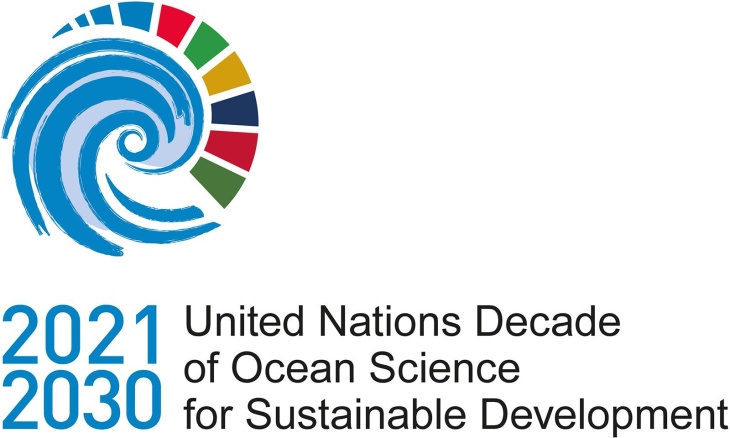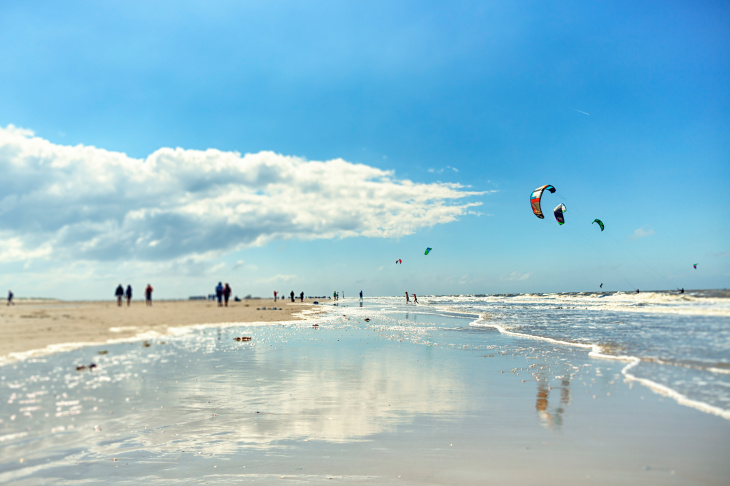UN Decade: Hope for the Sea
Solutions are needed to address problems concerning the seas. The global community wishes to invest considerably more into relevant research and find comprehensive societal solutions for marine protection and sustainable use. This is what the “UN Decade of Ocean Science for Sustainable Development” envisions for 2021 to 2030. “The Decade” officially begins on June 1st. Due to the pandemic, the commencement will take place as a virtual high-level conference, organized by the German Federal Ministry of Education and Research (BMBF) and UNESCO.

Official Logo of the UN Decade
The scientists at the Helmholtz-Zentrum Hereon, too, have been eagerly awaiting this launch for a long time. Prof. Burkard Baschek, Director of the Institute of Coastal Ocean Dynamics at the Helmholtz-Zentrum Hereon explains, “The UN Decade is providing groundbreaking momentum for our research in the decade to come.” For the international launch event, Baschek is the organization committee’s chair of the “Safe Ocean” outcome. It is important to him that it’s not only about science, but about a societally comprehensive approach.
New strength for marine sciences
On global average, nations spend merely 1.7 percent of their research budget on ocean sciences, according to the Global Ocean Science Report presented by UNESCO’s Intergovernmental Oceanographic Commission last December.
Oceanographic research is becoming increasingly important, primarily due to the vital role the seas play in the global economy. Ten years ago, the Organization for Economic Co-operation and Development (OECD) estimated that thirty million full-time jobs directly depend on the seas, mainly in the fishing industry. More than three billion people obtain some portion of their diet from the ocean. World trade and shipping, tourism, fossil fuels as well offshore wind energy are additional buzzwords that highlight the ocean’s importance.
Seven targets for improving the ocean
The United Nations’ General Assembly has adopted seven goals to mark the Decade of Ocean Science for Sustainable Development:
1. A clean ocean for which sources of pollution are identified and reduced or removed.
2. A healthy and resilient ocean in which the ecosystems are understood, protected, restored and managed.
3. A productive ocean that supports a sustainable food supply and sustainable marine economy.
4. A predictable ocean, meaning society understands and can respond to changing conditions in the ocean.
5. A safe ocean, where life and livelihoods are protected.
6. A transparent ocean with open and equal access to data, information, technology and innovation.
7. An Engaging and inspiring ocean, where society understands the ocean, values it and is involved in its development.
What does this all mean for Hereon?

Habitat, food source, place of longing: the oceans are of central importance to humanity. Photo: iStock/Rike_
The plan for implementing these goals was developed within a comprehensive consultation process, in which all global regions were included. It was adopted by the United Nations General Assembly. The international community has already committed to achieving sustainable ocean utilization by 2030 through the adoption of “UN Sustainability Goal 14”. It is now up to policy makers, society and researchers to bring this plan to fruition. “Regional particularities must be taken into account. But action must be global. The poorer regions of the world must not be left behind,” Baschek says. For Hereon, he expects coastal research to be upgraded as a vital component of the marine sciences.
Throwing more money into the process isn’t everything. The UN Decade will promote networking in science, entirely new approaches to solutions and thereby the overall process: for example, problems such as marine litter, rising sea levels, ecosystems, climate change, but also the cultural significance of the seas. Baschek believes, “After these ten years, relevant research will have assumed a completely new role, not only at our center. The coasts are becoming increasingly important for the human population. The UN Decade is arriving at the right time.” Seventy-one percent of the planet’s surface is covered by oceans. It is our “blue lung”. According to UNESCO, human health, safety and wellbeing “significantly depend on knowledge of the ocean.” The UN decade is therefore much more than just an impetus for sustainable development.
Further Information
Contact
Institute of Coastal Ocean Dynamics
Helmholtz-Zentrum Hereon
Communication and Media
Helmholtz-Zentrum Hereon
